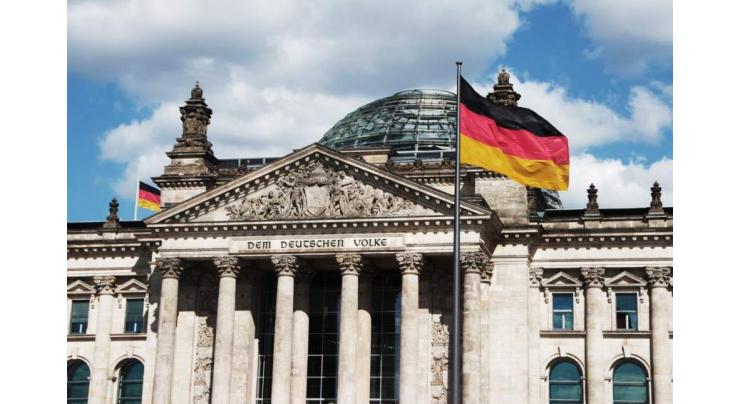
Germany Summons Russian Envoy, Seeks Sanctions Over Hacking
Sumaira FH Published May 28, 2020 | 05:53 PM

Germany's foreign ministry on Thursday called in the Russian ambassador to discuss possible sanctions against Moscow over a 2015 hacking attack on the German parliament, in an escalating diplomatic row
Berlin, (APP - UrduPoint / Pakistan Point News - 28th May, 2020 ) :Germany's foreign ministry on Thursday called in the Russian ambassador to discuss possible sanctions against Moscow over a 2015 hacking attack on the German parliament, in an escalating diplomatic row.
"The Russian ambassador was informed that on the basis of an arrest warrant issued by the (German) Federal prosecutor's office on May 5 against Russian national Dmitry Badin, that the German government will seek in Brussels to use the EU cyber sanctions regime against those responsible for the attack on the German Bundestag, including Mr Badin," the ministry said in a statement.
German Chancellor Angela Merkel told parliament this month that Russia was targeting her in hacking attacks, saying she had concrete proof of the "outrageous" spying attempts and raising the possibility of sanctions.
Berlin's intelligence services have repeatedly called out attempts by Russian hackers to spy on lawmakers or leading politicians.
Badin is also wanted by the FBI for other cyberattacks, including those targeting the Democrats during the 2016 US presidential election.
He was accused by the German federal prosecutor's office this month of spying against the Bundestag lower house of parliament in 2015 on behalf of Russia's GRU military intelligence service.
The operation aimed at the Bundestag involved an aggressive attack called Sofacy or APT 28 that had also struck NATO members and knocked French tv station TV5Monde off the air.
It is believed to have scooped up data from Merkel's email account as well as those of MPs. According to Spiegel magazine, hackers managed to completely copy two of Merkel's email accounts containing correspondence dating between 2012 and 2015.
The move comes against the backdrop of mounting friction with Berlin over Moscow's actions in different arenas -- from annexing Ukraine's Crimea, to cyber meddling in elections and its backing of Bashar al-Assad's government in Syria.
Related Topics
Recent Stories

Bismah Maroof announces immediate retirement from international cricket

Malala expresses unwavering support for Gaza people

Selection committee dissolved over Pakistan women cricket team's poor performanc ..

Punjab CM Maryam Nawaz in police uniform at Chung police center

Currency Rate In Pakistan - Dollar, Euro, Pound, Riyal Rates On 25 April 2024

Today Gold Rate in Pakistan 25 April 2024

Mired in crisis, Boeing reports another loss

Session Awarding Ceremony 2024 held at Cadet College Muzaffarabad

Austrian ski great Hirscher to make comeback under Dutch flag

Pakistan, Japan agrees to convene 'Economic Policy Dialogue'

FM Dar conveys deepest sympathy on torrential rains devastation in UAE

Spain PM Sanchez says weighing resignation after wife's graft probe
More Stories From World
-
Philippines grapples with measles, pertussis outbreaks: UNICEF
50 seconds ago -
450,000 stimulant tablets seized in Myanmar's Yangon
56 seconds ago -
Mining giant Anglo American shares jump on BHP bid
59 seconds ago -
Cambodia's rubber export up 5.1 pct in Q1
1 minute ago -
Zimbabwean president reshuffles cabinet
1 minute ago -
Football: Italian Cup result
1 minute ago
-
Sugar futures close lower
11 minutes ago -
China-donated relief supplies arrive in Papua New Guinea
11 minutes ago -
ChiNext Index closes lower Thursday
11 minutes ago -
BHP launches $38.8 billion takeover bid for rival Anglo American
21 minutes ago -
AstraZeneca profit up on strong sales of cancer drugs
21 minutes ago -
93 arrested at LA university pro-Palestinian protest for trespassing
21 minutes ago